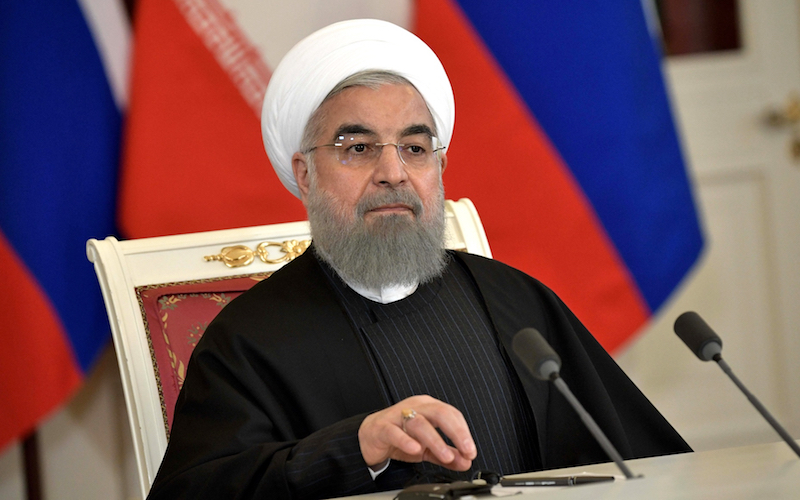
Iranian President Hassan Rouhani Visits Moscow: A Strategic Trust
Russian officials welcomed Iranian President Hassan Rouhani to Moscow for a two day visit where he met with Prime Minister Dmitry Medvedev and President Vladimir Putin. President Rouhani has called for more cooperation between Tehran and Moscow in energy, terrorism, and investment. The two countries have signed multiple bilateral agreements related to economics, trade, along with tackling regional and global developments. The western sanctions placed on both Tehran and Moscow have drawn the two countries together and the trust level continues to improve and will in the near future.
This is not the first time President Putin has met with his Iranian counterpart, and by all accounts, they have established a mutual trust and warm relationship. However, this comes at a very important time. First, we are approaching the end of the Syrian conflict and ironically one of the goals of the United States and its proxies, which include Saudi Arabia was to reduce the Shia influence in Syria to counter Iran. Another goal was to deprive Iran’s alliance with Syria through regime change which did not work very well for six years.
As a result of the U.S. intervention in Syria, Iranian influence has increased and Russia has found a geopolitical cloud in the Middle East. It may not exert more influence than it did under the Soviet Union years, but Russia is still a major player for a political solution to the proxy conflict.
In Syria, Russia and Iran have a working relationship and both sides are willing to keep the Joint Comprehensive Plan of Action (JCPOA) in place to allow for more negotiations. In addition, Iran has some of the world’s largest oil fields which have been exploited and neglected under western sanctions. Iran needs to modernize and invest in the oil and gas fields and Russia is in a position to assist because its investment in western markets is limited due to sanctions.
Due to western sanctions, Iran offers a new market for Russian business as well, so they are natural allies. There is a trade-off between Tehran and Moscow so both sides need each other. Russia can offer Iran energy and investment sources, while Iran can offer Russia a place to invest in these areas. President Rouhani has indicated that he welcomes Russian oil and gas investments. Russia and Iran have not only formed a stable geopolitical, strategic relationship, but they have also formed a geo-energy axis.
The main U.S. goal in Syria was to discredit Iranian influence in the region, but actually, the complete opposite has taken place. From a geopolitical perspective, the Syria situation is very complex. Russia and Iran have more power now than at the start of the conflict and both countries have empowered themselves by paying a price for western sanctions. Iran’s price for sanctions was certainly heavier than Russia’s, but the oil wars with Saudi Arabia contributed to the struggling economies as well. Saudi Arabia and Qatar wanted to deliberately over produce oil and drop prices, but in the end, there was an agreement to raise prices on oil. Iran wants to increase oil production and Russia could be a competitor in the world of energy and gas.
In terms of the geopolitical arena, Iranian and Russian increased influence, as well as Saudi Arabia’s interventions in Syria and Yemen, will reshape the Middle East. It could be possible that under President Trump, the United States could align itself with Iran in Iraq and Syria. However, the neo-conservatives and the war hawks in the Pentagon want to ramp up tensions with the Islamic Republic. Russia will be uniquely positioned diplomatically to prevent a direct confrontation between the U.S. and Iranian forces as well as maintaining a stable geopolitical environment in the Middle East.

